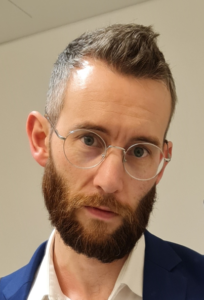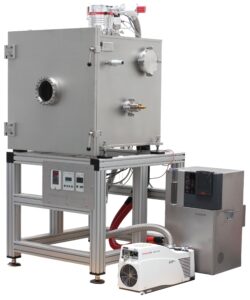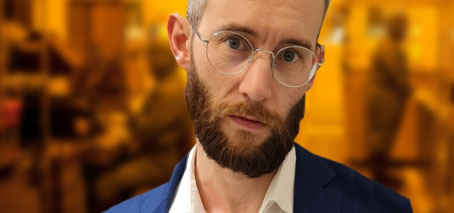
‘Be open to careers you hadn’t considered before’ FLEET alum Paul Atkin found a hugely satisfying role by considering jobs outside the tight focus of his research.
- Talk to as many people as possible about your future career
- Stay open to new career directions
Hi, I’m Paul Atkin. If we didn’t meet during my time as a FLEET scientist, we may have met more recently in my new life as a sales guy. If we haven’t met yet, I sincerely apologise and strongly suggest we meet for a coffee soon.
I joined FLEET during the last year of my PhD, as a member of Kourosh Kalantar-zadeh’s research group at RMIT. At the time I was working on new synthesis methods and applications for 2D transition metal oxides and dichalcogenides, and that work continued on as a postdoc position through 2018. The thing I really enjoyed about my time as part of the team at RMIT and FLEET was working with so many intelligent and fun people.
Is funtelligent a word yet? It is now.
An interesting aspect of nanotechnology is that because it is (even now) still a relatively new field, it brings a diverse set of people to work together and move research in directions that didn’t exist until fairly recently. Because there’s so much scope for collaboration between fields that are traditionally quite distinct and separate, there are a lot more opportunities to interact with scientists from spheres outside your own and hear about things you normally wouldn’t be exposed to.
Unfortunately, I found that I was a lot more burnt out than I had expected to be, and after only four and a half years of research I had to admit that I wasn’t cut out for life as an academic. This probably had a lot to do with having started my PhD about ten years later than most people would and having a family life at least as demanding as my work life, but that’s what I get for spending my twenties doing fun things like avoiding responsibility and not buying a cheap house.
After seriously considering a career in data analytics and letting myself relax overseas for a couple of months, I was contacted by a recruiter that I had met previously and offered a job as a Territory Manager for Scitek. Scitek had been looking for someone with a PhD in physics and a sociable personality for about six months. I’d not given a career in sales a lot of thought, mainly because I hadn’t expected that I’d ever be lucky enough to land such a job. It turned out I was wrong, and I was given a job.
I was hesitant at first, because I didn’t want to be tasked with pestering people and pushing them to buy things they don’t need, but I quickly learned that that is not at all what my job entails.

“Even without being directly involved, it is still satisfying to help facilitate others’ scientific discoveries.” Scitek provides custom vacuum equipment like this space simulation chamber.
So now, mostly by luck, I’m in a position where I feel appreciated for my skills and experience, I get to talk to intelligent people most of the time, I work reasonable hours, I get paid well and I don’t get bored.
I’m aware that telling a story about how I got lucky doesn’t really constitute career advice, so I guess the important points to consider are these:
- Contact lots of recruiters (or whoever is relevant to the area you’re interested in working in), even if you think it won’t lead anywhere.
- And be open to careers you hadn’t considered before, because you might otherwise miss out on something really good.
Thanks for reading! Feel free to reach out if you want to talk about anything at all; I enjoy it. My favourite thing about being a scientist was talking with other scientists, but that was mostly a distraction from my work. Now, talking to scientists is the work.
—Dr Paul Atkin, Territory Manager, Scitek Australia
FLEET alum
Contact me on paul@scitek.com.au if you’d like to chat
FLEET alumni
FLEET is developing a skilled workforce of future Australian science leaders. We are extremely proud of those members who have already moved on to great careers, making use of skills developed in their time at FLEET. Ultimately it will be FLEET alums as much as research outputs that define the success of the Centre. Read more alumni news at FLEET.org.au/alumni

